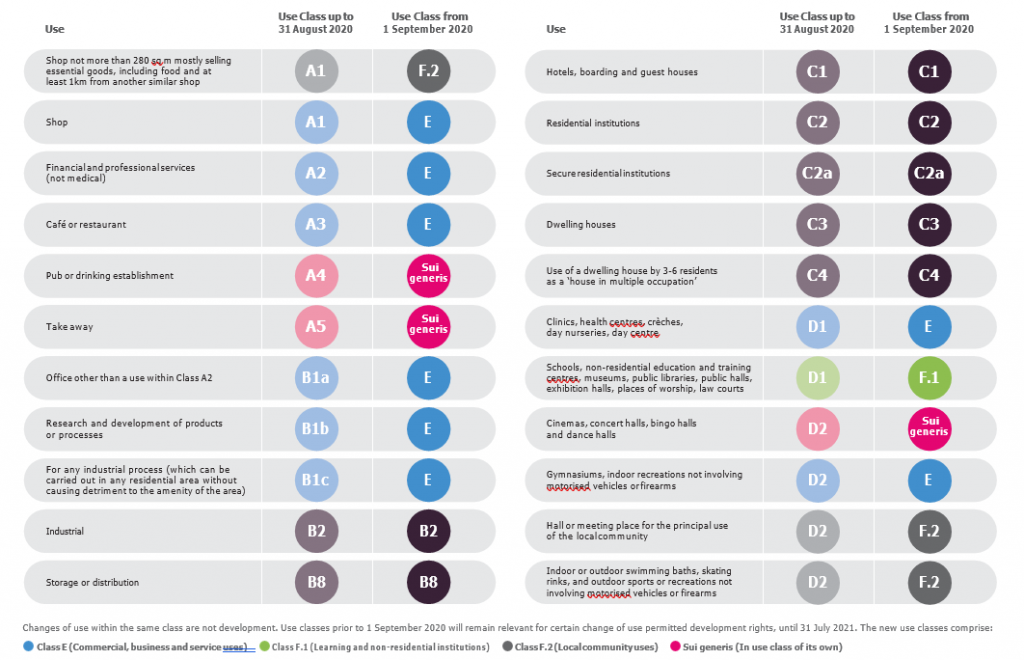Changes to the Use Classes Order to give greater clarity and reflect the diversity of uses
The Government is making a number of changes to the planning process and one significant update is the changing of the categories of use in the Use Classes Order from 1 September 2020 in England. The aim is to make the Use Class a better fit to the current needs and diversity of uses on the high street and in town centres.
The Town and Country Planning (Use Classes) Order 1987 will be amended to include 3 new classes and remove a number of the well-known ones. (See the chart below for a quick guide).
With the creation of Use Class E the intention is to allow flexibility for landlords and tenants to offer a wider range of uses for the let property (shop, unit office) and reduce the burden of obtaining planning permission for a change of use. This should reduce costs and allow one use in the day and another in the evening e.g. a shop in the daytime becomes a gym at night!
GUIDE TO CHANGES TO THE USE CLASSES ORDER IN ENGLAND

Landlords
For a landlord, this change has the effect of making a property more flexible to differing tenants. This can only be a good thing with the increased completion from online sales and large out of town shopping centres.
The landlord need not fear that they are losing control of the property as the lease will normally set out the use intended by the tenant in more detail than simply referring to a Use Class. Also, the lease will set out the way in which the tenant can ask for a change of Use.
For an existing lease that has the Use referred to as a Use within the Use Classes that existed at the time of the lease, then there will be no change. This is because the Use will be that as intended by the then legislation. The lease should have a clause to confirm this.
Landlords may well seek to allow a variation to an existing lease to give the tenant greater options when dealing with the business or when looking to sell the property on.
Tenants
This good news for a tenant seeking to sell or to expand their business. The tenant does not now need to apply for the planning permission which can be costly and time-consuming. This also allows a tenant to explore new business opportunities for their existing business or to allow a new business to grow.
Care should be taken to engage with the landlord and discuss plans when an idea has been formed. As mentioned above the landlord’s permission is still required.
If you would like any more information in relation to this article then please feel free to contact me: Telephone 020 8221 8052, via email: tony.chauhan@bowlinglaw.co.uk or visit my profile.